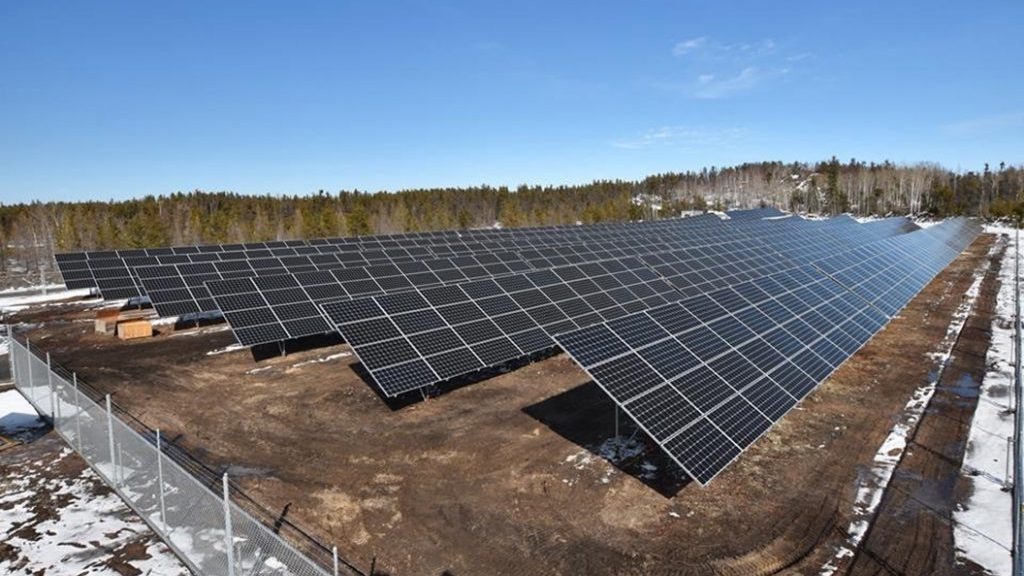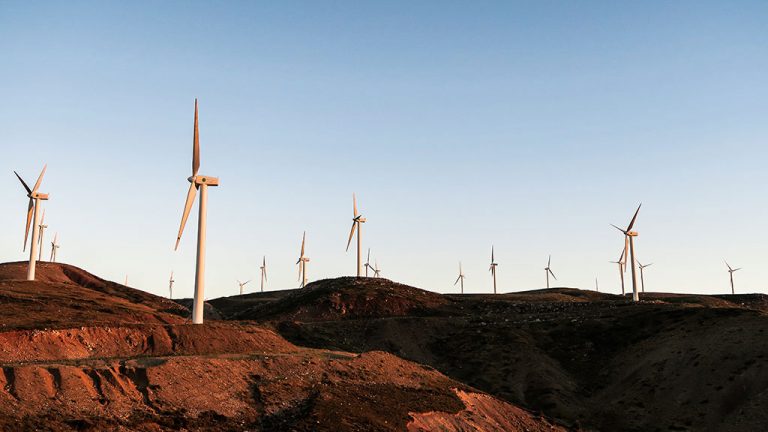Preparations have begun for construction of the final phase of Canada’s largest off-grid solar farm, a 7,500-panel, 2.6-megawatt project on 6.5 hectares in the northern Alberta community of Fort Chipewyan.
The venture will create more than 40 jobs over the year-long construction period and, upon completion, will reduce greenhouse gas emissions by 2,170 tonnes annually by displacing up to 800,000 litres of diesel fuel per year that must be trucked in to the hamlet 220 kilometres north of Fort McMurray.
The first phase, which was completed this past summer and owned by ATCO, an energy infrastructure company, involved building and integrating a smaller, 400-kilowatt system into the present diesel-generation system.
The second and much larger phase entails building a bigger system that will be owned by Three Nations Energy, a company formed by Athabasca Chipewyan First Nation, Mikisew Cree First Nation and Fort Chipewyan Metis Local 125 — three neighbouring Indigenous groups in Fort Chipewyan. ATCO will be a partner in the project.
“We’re just getting ready to start on it now,” says Mikisew councillor Calvin Waquan, who is president of Three Nations Energy. “We’ll be using heavy equipment to clear the land and drive in piles to support the panels.
“We’ll be using local contractors who own heavy equipment rather than bringing it in. It will likely be smaller equipment. We utilize what we can up here. It’s mostly small trees and shrubs currently on the land.”
Contractor for the project has been selected by Three Nations but has not yet been publicly announced.
Over the winter months, the solar panels and electrical and racking components will be trucked in via a winter road and installation will begin in the spring and continue through summer. By fall the system will be up and running. Soil in the area is very sandy, says Waquan, so the piles will have to be driven deep.
It’s better for our environment, it’s better for our community and it’s just a lot safer,
— Calvin Waquan
Mikisew Councillor
The community, home to about 1,000 people, is not connected to Alberta’s grid and relies on diesel fuel for heat and power. Every year, diesel is transported by trucks on the winter road which is only open for a six-week period.
Because of population growth and increased demand for energy, residents of Fort Chipewyan were faced with the prospect of bringing in more fuel but there were concerns that, with a constant parade of trucks and each tanker truck carrying 50,000 litres of fuel, it could pose a problem if one spilled its load.
The community was also outgrowing existing diesel tanks and a sustainable solution was needed. So, instead of adding more storage, Indigenous partners worked with government to come up with a green solution.
The project received $4.5 million from the federal government and $3.3 million from Alberta. It will result in 25 per cent of electricity generation for the community coming from renewable sources. The second phase will generate enough electricity to power the equivalent of 350 homes per year in Fort Chipewyan.
Waquan says the grid will result in up to a dozen fewer tanker trucks having to travel the ice road. As part of the project, an electronic sign will be erected to publicly display how many litres of fuel is being saved.
“With less tankers, it also means that less people will have to drive next to these big trucks on the winter road,” notes Waquan. “It’s better for our environment, it’s better for our community and it’s just a lot safer.”
Alberta Indigenous Relations Minister Rick Wilson says the project is a good example of how industry and Indigenous peoples are working together to provide important infrastructure for the people of Fort Chipewyan.
“It’s that spirit that we harness through the Alberta Indigenous Opportunities Corporation which removes barriers to capital for Indigenous communities, and it gives them a way to realize their natural resources development ideas. We hope to see many more partnerships in prosperity in Alberta.”
ATCO vice-president Quyen Nguyen says the company is looking forward to working on the second phase of the venture.
“ATCO is honoured and thrilled to partner with the community of Fort Chipewyan to implement an innovative and sustainable clean energy micro-grid solution,” he says.
The project has received rave reviews from Dave Lovekin, director, renewables in remote communities at the Pembina Institute think-tank which advocates for policies to support Canada’s clean energy transition.
“This project is another strong example of the tectonic shift happening in remote Indigenous communities,” he said in a statement. “These clean energy opportunities not only reduce greenhouse gas emissions and negative environment impacts but are also a source of pride for community members and a source of revenue for the community.”










Recent Comments
comments for this post are closed